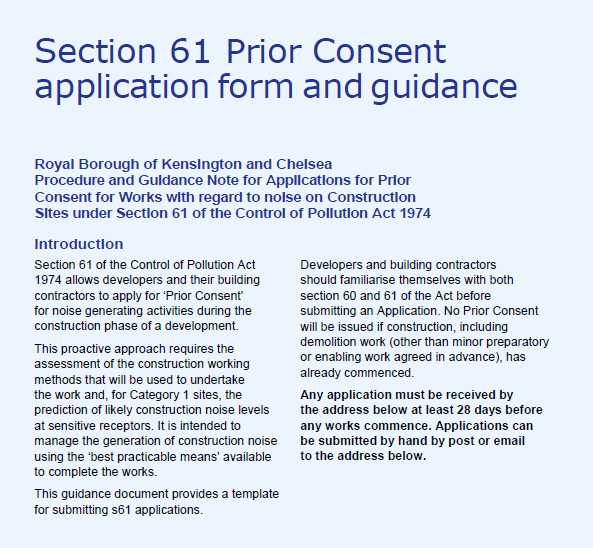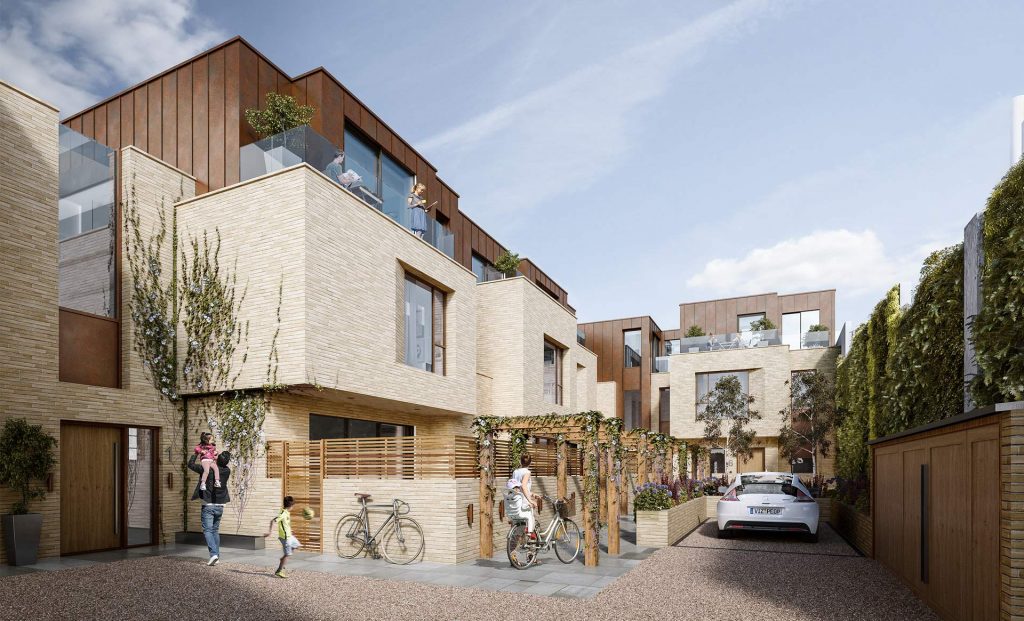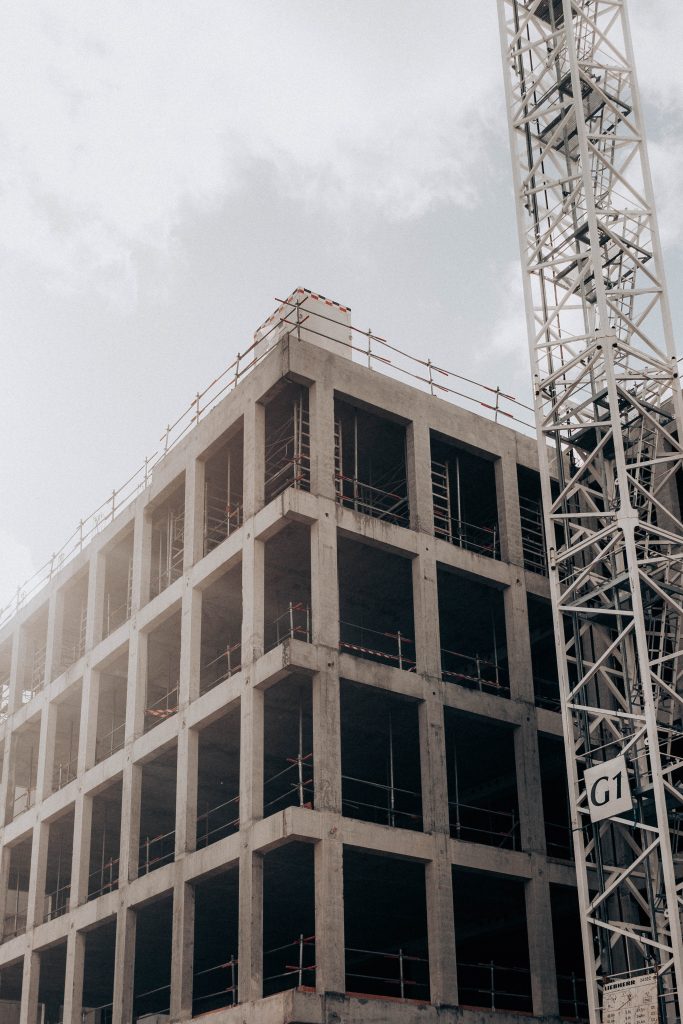Section 61 Consultancy
We provide consultancy services for Section 61 applications for construction projects in London, helping developers and building contractors to submit comprehensive and effective applications to local councils to obtain Prior Consent for noisy construction activities.
What is Section 61?
Section 61 of the Control of Pollution Act 1974 allows developers and their building contractors to seek “Prior Consent” for noisy construction activities.
This involves assessing construction methods and predicting noise levels to manage noise generation during the construction phase using the best possible means.

We support contractors for section 61 council applications prior to construction and demolition works commencement.
How do we create success
Get your project going in 3 steps
Step-1: We review your project
Step-2: predict noise levels and prepare report
Step-3: apply council for section 61

Railway Mews, North Kensington
Liongate provided Section 61 Consultancy for a project, consisting 6 new build luxury terraced houses in London. We worked with noise consultants and managed communication with the RBKC Council and got approval for construction and demolition works start.
Councils we worked with
WE WORKED WITH MORE THAN 30 DIFFERENT COUNCILS ACROSS THE UK.
WE GOT CONDITION DISCHARGES FOR ALL OF OUR PROJECTS.































CONTACT US FOR Section 61 & Construction Noise Consultancy QUOTATION
You can contact us for a quick quotation.
FREQUENTLY ASKED QUESTIONS
What are the typical sources of construction noise?
Construction noise can come from a wide range of activities such as heavy machinery, power tools, hammering, sawing, and drilling. Other sources can include equipment such as compressors, generators, and pumps.
What are the potential impacts of construction noise on the surrounding community?
Construction noise can have a range of impacts on the surrounding community, including annoyance, sleep disturbance, and reduced quality of life. It can also have negative impacts on mental and physical health, particularly for vulnerable populations such as children, the elderly, and those with pre-existing medical conditions.
What are some common ways to mitigate construction noise impacts?
There are several ways to mitigate the impacts of construction noise, including the use of noise barriers, mufflers on equipment, construction scheduling that minimizes noisy activities during sensitive times, and relocating noisy activities to less sensitive areas. Construction companies can also implement a noise management plan that outlines best practices for noise reduction and provides guidelines for minimizing impacts on the surrounding community.
What regulations are in place to manage construction noise?
Most countries have regulations in place to manage construction noise, including limits on noise levels, restricted hours of operation, and requirements for noise monitoring and reporting. In the UK, for example, Section 60 and Section 61 of the Control of Pollution Act 1974 provide guidance on managing noise pollution during construction activities.
How can construction noise impacts be mitigated?
There are several ways to mitigate construction noise impacts, including:
- Using quieter equipment and tools
- Implementing noise barriers and sound insulation
- Scheduling noisy activities for times when they will have the least impact on nearby residents, such as during the day when most people are at work
- Providing regular updates and communication to affected parties about the construction schedule and any potential noise impacts
- Monitoring noise levels and adjusting construction methods or equipment as needed to reduce noise. It is important for developers and contractors to work closely with local authorities and communities to identify and implement effective noise mitigation measures throughout the construction process.

CONSTRUCTION

CONSULTANCY
